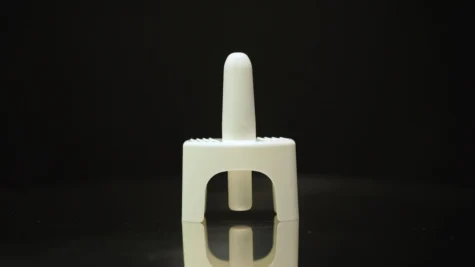When it comes to mental health treatment and therapy, you have probably heard of traditional “talk therapies” or psychotherapies such as cognitive behavioral therapy (CBT), dialectical behavior therapy (DBT), or interpersonal therapy. These therapies are effective treatment options.
Another innovative category of therapy you may be less familiar with is experiential therapy. Unlike traditional psychotherapies, experiential therapy often has an emphasis on activities or movement of some sort, such as role-play, arts and crafts, or music. Experiential therapy allows participants to encounter or reenact experiences from their past or present, sometimes in a deeper way than they might have been able to do by talking.
This blog will explain the benefits of experiential therapy and help you consider if it might be a good treatment option for you or a loved one.
What Are Examples of Experiential Therapy, and What Can It Treat?
Some of the more common examples of experiential therapy include drama therapy (psychodrama), music therapy, art therapy, play therapy, animal-assisted therapy, and outdoor or adventure therapy. Experiential therapy can help with mental health challenges including but not limited to trauma, post-traumatic stress disorder (PTSD), addiction and substance use, grief and loss, obsessive-compulsive disorder (OCD), relationship and family issues, depression, and eating disorders.
What Are Some Key Benefits of Experiential Therapy?
There are several key benefits of experiential therapy, including that it can be an outlet for emotional processing that doesn’t depend solely on talking (though experiential therapy is often done alongside talk therapy). Traumas are usually deep-seated and painful, and an approach that doesn’t rely on verbalizing them can open new pathways to healing. Here are three benefits of experiential therapy:
- Trauma Recovery: When big emotions feel overwhelming, finding the words to talk about them can be hard. Art therapy or music therapy, for example, can be effective alternatives to experience and externalize big emotions, even when words are hard to find. Both of these therapies can be powerful tools in changing our mood and behavior.
- Build Confidence and a Sense of Empowerment: Physical challenges from outdoor or adventure therapy activities can build resilience and offer participants an opportunity to take risks or learn new skills. Overcoming physical and mental challenges in a controlled environment can boost confidence and help you tackle your trauma head-on.
- Improve Self-Awareness: When we engage with our creative and emotional selves, we often gain deeper insight into our patterns, behaviors, and triggers. Over time, experiential therapies like animal-assisted therapy can promote emotional connections or reflect our energy and behavior back to us in a way that requires introspection. Increased awareness is one of the first steps to making better decisions to address our trauma.
These benefits of experiential therapy can improve your self-awareness, help you gain insight into patterns or emotional triggers you may have felt but might have had a hard time defining, and can provide you with the confidence to start moving past your trauma. It is a therapy that works in both one-on-one settings or with groups and can also be a very useful approach for anyone resistant to talk therapies.
Southern Sky Recovery and Experiential Therapy
We believe that finding the right therapeutic approach is essential to living a healthy and happy life and achieving and maintaining a life of recovery. Trust us–we know there is no one-size-fits-all solution when it comes to processing severe trauma or overcoming substance use disorders. Our compassionate, caring, and experienced therapists want to join you in creating a tailored treatment approach that meets your unique needs. From experiential therapies to CBT and beyond, we have a variety of options available. Contact us today to learn more about our programs and the best approach for you.



